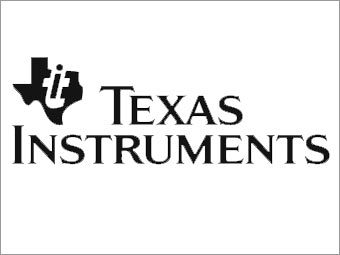Texas Instruments to Acquire Nat-Semi for $6.5bn
Texas Instruments could become the third largest semiconductor manufacturer in the world if its bid to purchase National Semiconductor is successful.
Texas Instruments this week announced a $6.5 billion bid for National Semiconductor. If the deal, one of the biggest the industry has seen in years, is approved, the resulting entity will take Toshiba’s place as the number three chip manufacturer in the world.
Analog chips take signals such as sound, light and termperature and turn them into signals usable by digital processing chips. The 2010 market for analog semiconductors was $42 billion and the $25-per-share all cash transaction that Texas Instruments is proposing represents a 78 percent premium on National Semiconductor's $3.4 billion market.
For all the cash it’s fronting for the acquisition of National, the Wall Street Journal reports that TI plans to achieve return on the investment by boosting National's revenue growth to a level that would be double the analog chip market's growth rate.
Rich Templeton, CEO, Chairman and President of TI, said yesterday in a statement that the acquisition was about growth and offering customers an unmatched portfolio of products.
"This acquisition is about strength and growth," said Templeton, "National has an excellent development team, and its products combined with our own can offer customers an analog portfolio of unmatched depth and breadth.
"Our ability to accelerate National's growth with our much larger sales force is the foundation of our belief that we can produce strong returns on our investment, he added. "The combined sales team will be 10 times larger than National's is today, and the portfolio will be exposed to more customers in more markets."
National brings with it a portfolio of 12,000 analog products, while Texas Instruments boasts a portfolio of 30,000 analog products.
Get Tom's Hardware's best news and in-depth reviews, straight to your inbox.
TI will continue to operate National's manufacturing operations, located in Maine, Scotland and Malaysia and Texas Instruments said in a statement yesterday that each site has additional capacity to increase production.

Jane McEntegart is a writer, editor, and marketing communications professional with 17 years of experience in the technology industry. She has written about a wide range of technology topics, including smartphones, tablets, and game consoles. Her articles have been published in Tom's Guide, Tom's Hardware, MobileSyrup, and Edge Up.
-
hunter315 Thats going to be one hell of a merger, should yield some nice results though, i wonder what TI can do with expanded fabrication potential, should give us some nicer lab toys for a bit less.Reply -
Assmar Why does the ti-83 cost more now than it did when I bought my first one over a decade ago? A-holes.Reply -
samwelaye assmarWhy does the ti-83 cost more now than it did when I bought my first one over a decade ago? A-holes.Reply
So true. and here i was thinking older tech gets cheaper over time... -
ceteras rod1975doesn't nat-semi hold an x86 license?not that it matters for the dealthey used to make Geode, but they sold that to AMDReply -
Wish I Was Wealthy Good for Texas Instruments,but bad for competition...Less companies to compete with each other that is...Reply
